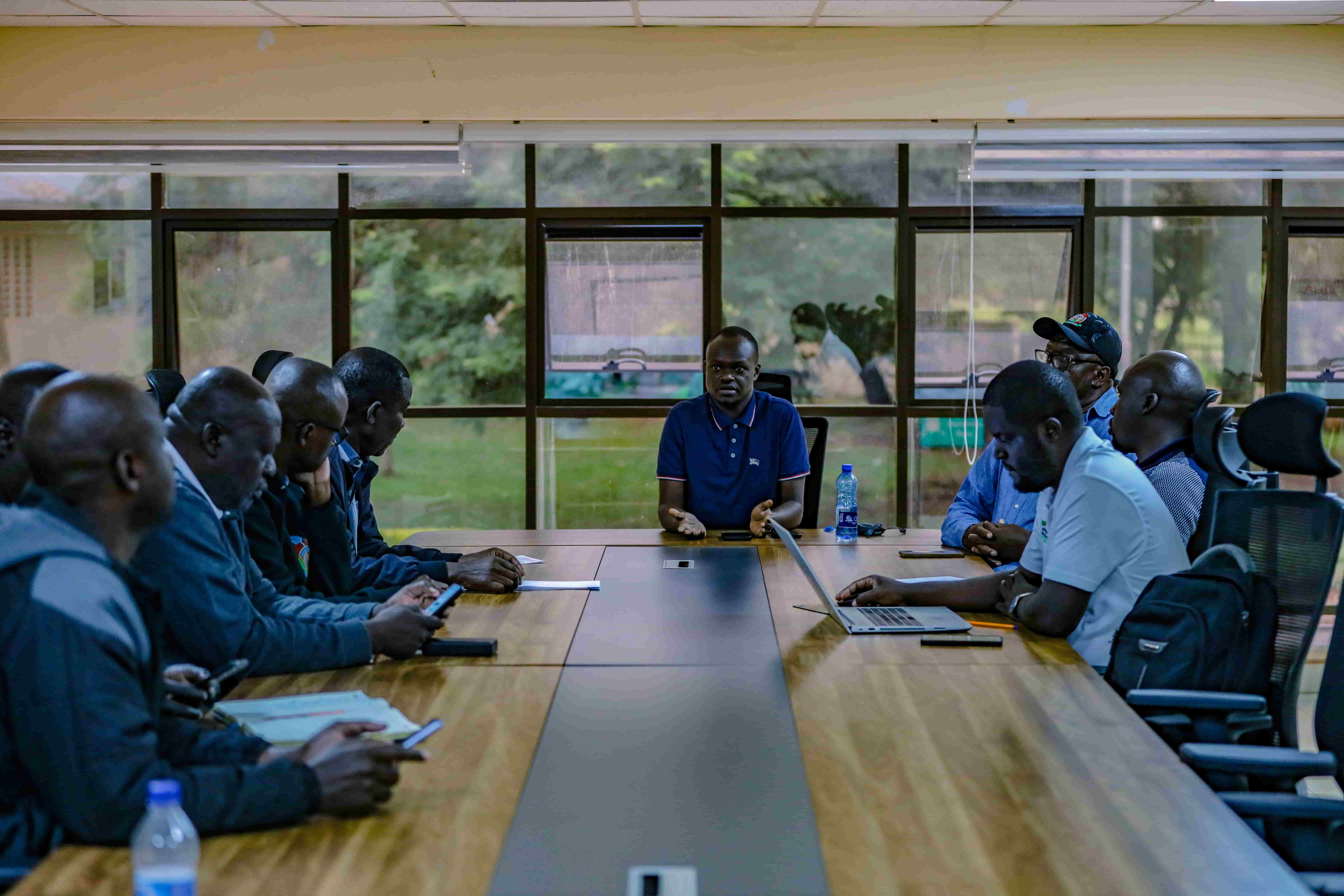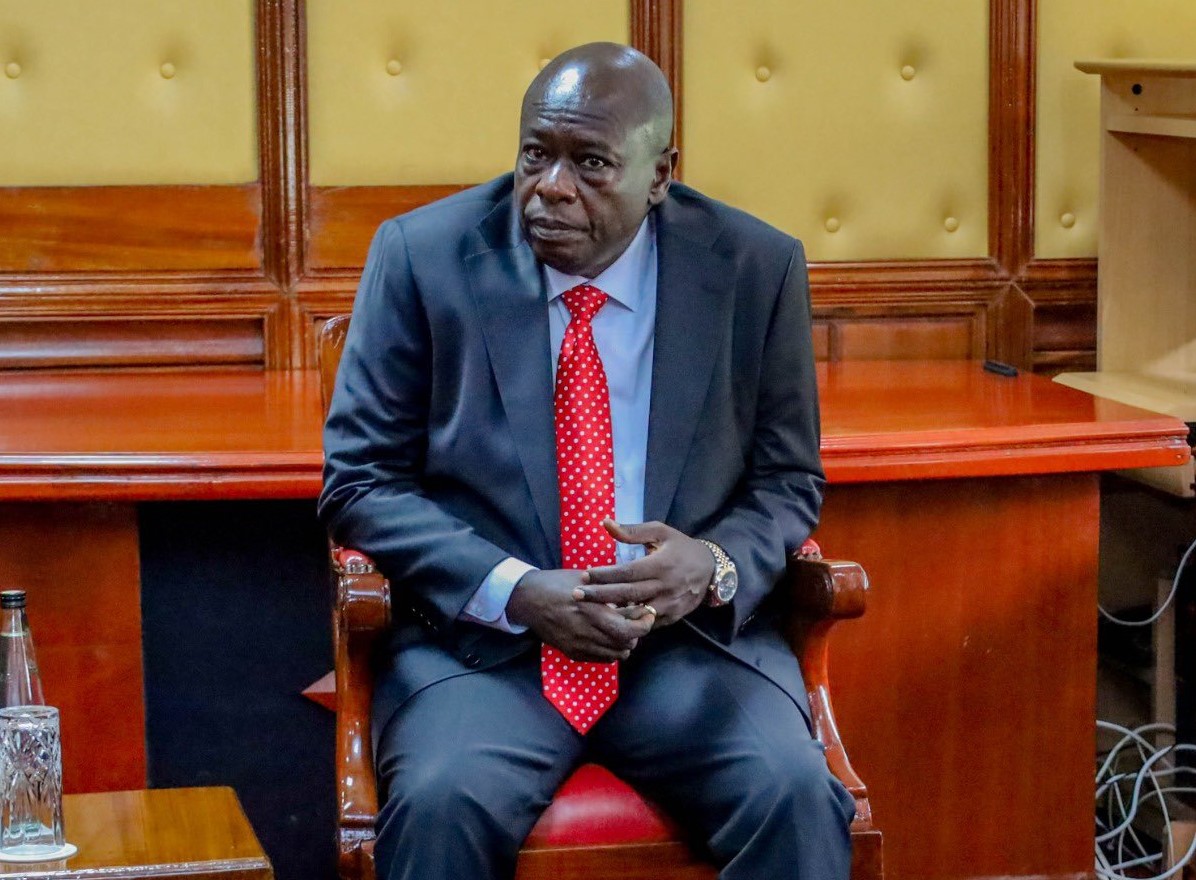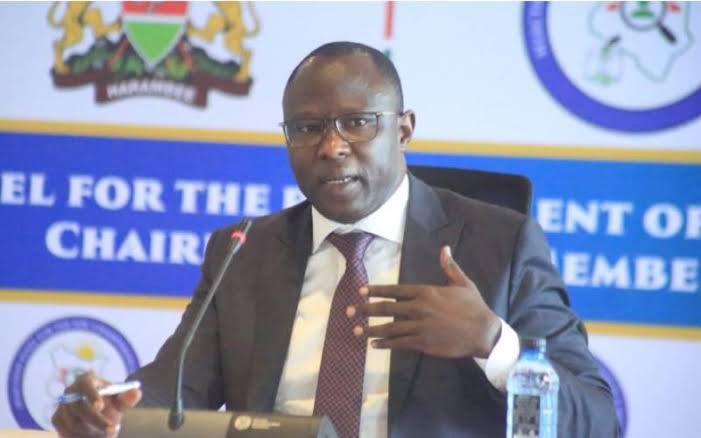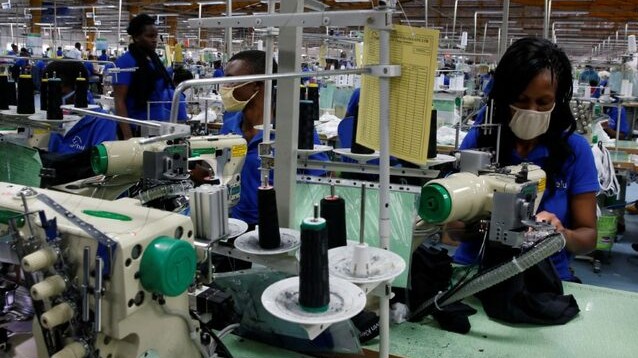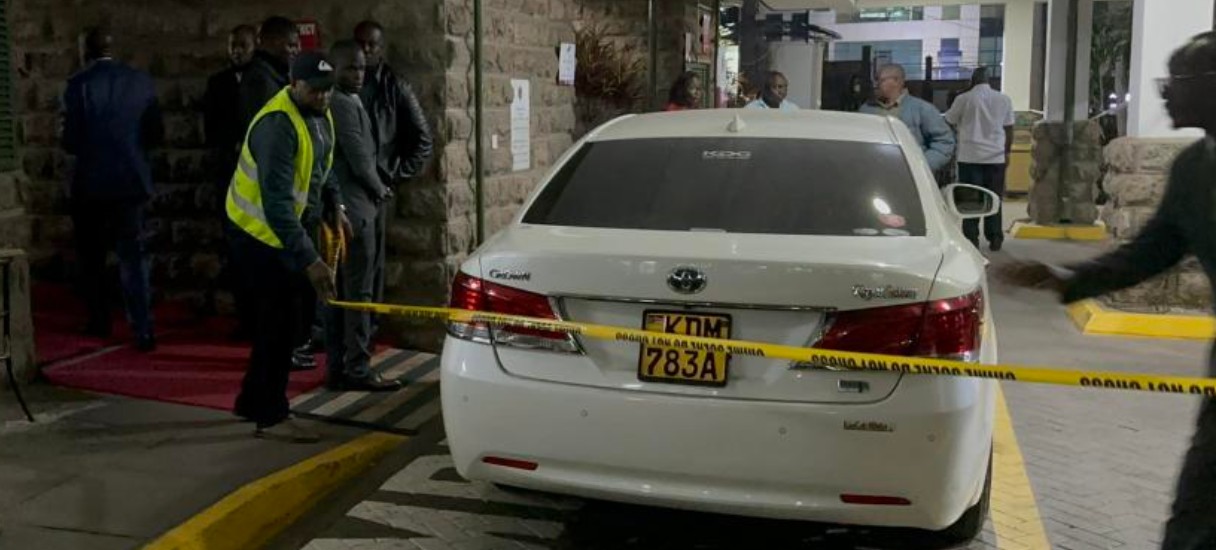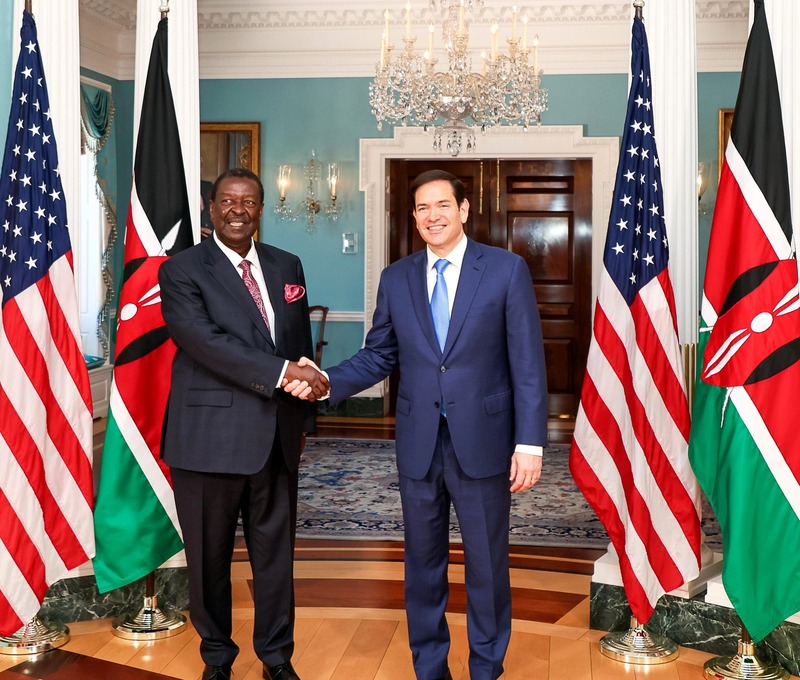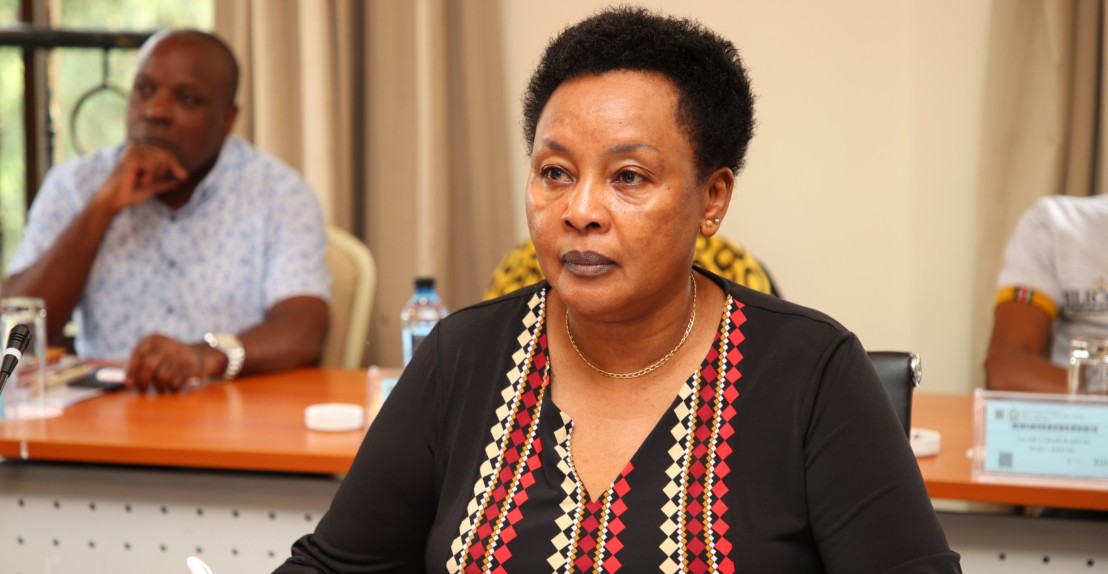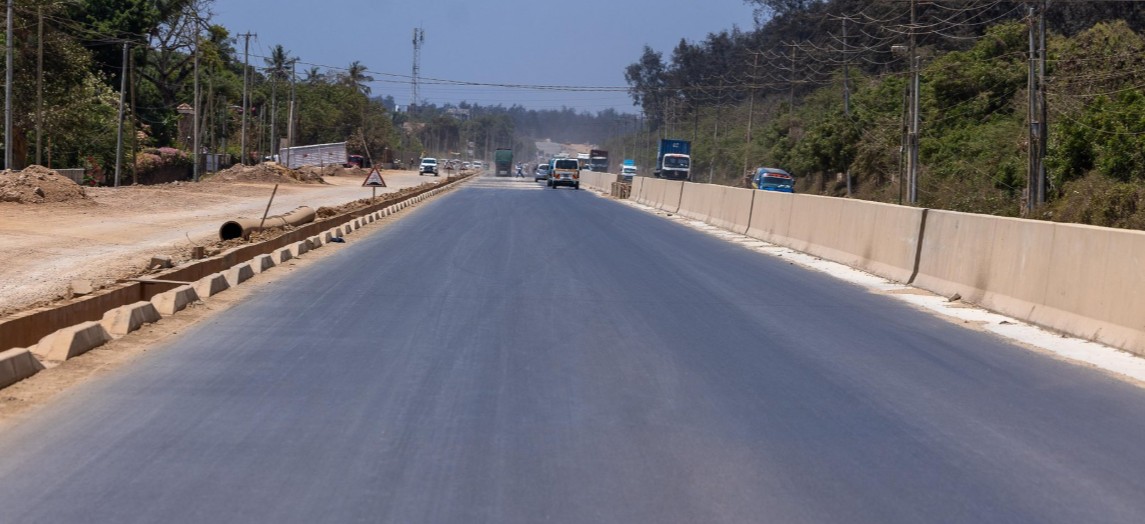Kenya land standoff sends warning to foreign-owned tea estates
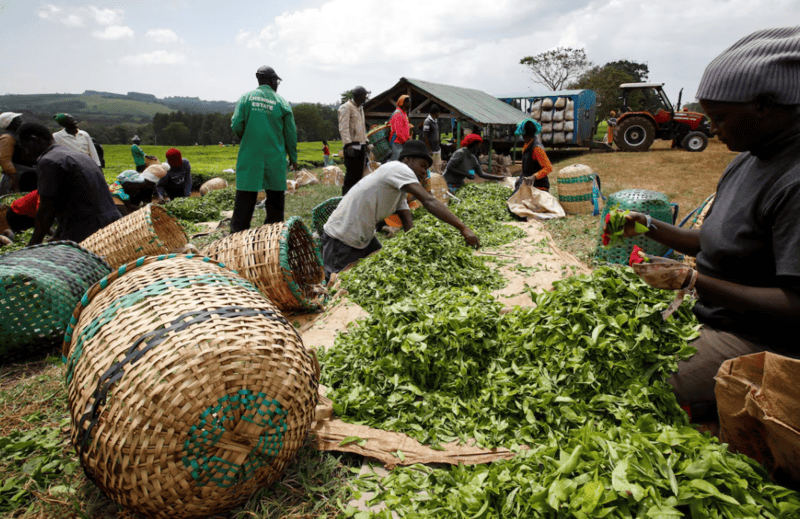
They say the land was gifted to them in 1986 by Eastern Produce Kenya. EPK, which is majority owned by London-listed Camellia Plc, says the gift was for 202 acres (82 hectares), not the 550 acres (222 hectares) that the local Kimasas farmers' cooperative claims.
A dispute between a British-owned tea plantation and a local community in western Kenya has come to the boil in what could be a sign of turbulent times ahead for tea producers facing a growing backlash over colonial-era injustices.
On the rolling green hills of the Sitoi estate in Nandi County, more than 100 residents are occupying 350 acres (140 hectares) of land, picking tea and living in huts made of mud and rusty iron sheets while grazing their cattle.
More To Read
- Government bans hawking of green tea to streamline industry
- Why taking green tea in the morning is a game changer
- State announces distribution of subsidised fertiliser for tea farmers ahead of short rains
- 10.6 per cent growth in Kenya's tea exports to Pakistan fuelled by rising demand
- Improved tea, flower exports cuts Kenya’s trade deficit by Sh23bn
- Boost for farmers, traders as Kenya permits sale of Rwanda's tea at Mombasa Auction
They say the land was gifted to them in 1986 by Eastern Produce Kenya. EPK, which is majority owned by London-listed Camellia Plc, says the gift was for 202 acres (82 hectares), not the 550 acres (222 hectares) that the local Kimasas farmers' cooperative claims.
Kimasas chairman Daniel Biwott said his grandfather lived on the land before it was seized by British colonists around 1905 and that reclaiming the disputed 350 acres would right a historical wrong.
"Nothing has happened all these years," said Biwott, standing among knee-high bushes where he, his father and his grandfather once worked as EPK employees. "This is the time to solve it."
The standoff follows several violent incidents at estates in Kenya, the world's fourth-leading tea producer. In January, a farm belonging to Sri Lankan-owned Browns Plantations was attacked and more than 100 eucalyptus trees uprooted, according to the Kenya Tea Growers Association (KTGA).
The industry group said in a statement that "criminal gangs who appear to enjoy political cover" were behind the "Zimbabwe-like illegal land invasion" of Sitoi, referring to seizures of white-owned farms in the early 2000s.
It said EPK was losing over $200,000 per month and the incidents threaten an industry that accounts for nearly a quarter of Kenya's export revenues and supports 5 million livelihoods.
Several people working on land issues said the attacks reflect broader frustration with a failure to remedy colonial land grabs.
"I have tried hard to use the legal system," said Joel Kimutai Bosek, a lawyer who has brought litigation against tea companies and the UK government on behalf of local communities without success. "I think the new or coming generation will be more aggressive."
 Members of the Kimasas cooperative society, accused by Eastern Produce Kenya (EPK) of invading the Sitoi Tea Estate causing substantial financial losses to the company, pluck tea leaves at a plantation in Mosine village of Nandi County, Kenya, January 22, 2025. REUTERS
Members of the Kimasas cooperative society, accused by Eastern Produce Kenya (EPK) of invading the Sitoi Tea Estate causing substantial financial losses to the company, pluck tea leaves at a plantation in Mosine village of Nandi County, Kenya, January 22, 2025. REUTERS
Few remedies
During the colonial era from 1895-1963, British authorities seized vast tracts of land, much of which became tea plantations, according to a 2021 U.N. report.
Awareness of historical injustices has grown since 2010, when Kenya established the National Land Commission (NLC) to address the issue, said Samuel Tororei, who was a commissioner until 2019.
But Tororei said the commission's effectiveness was undermined by its limited mandate and an "unholy marriage" between tea companies and political elites.
Under Kenya's 2010 constitution, tea companies' previous 999-year leases were reduced to 99 years but activists complain the government has not used its ownership of the land to extract meaningful concessions in land or money for local communities.
"The underlying cause of tension is that you have overseas owners of large-scale plantations which are based on land that was taken from the community," said Guy Chambers, managing director from 2015-2022 of Britain's James Finlay, which had tea estates in Kenya until 2023.
Kenyan government spokespeople did not respond to requests for comment. The companies say they comply with Kenyan law and accuse some politicians of exploiting historical tensions to undermine their land tenures and advance personal business interests.
Other community attempts to reclaim land have yielded little. Legal options are constrained by statutes of limitations and official immunities, the U.N. report said.
The private equity firm Chambers runs and a community group in the tea-growing county of Kericho jointly bid last year for estates belonging to CVC Capital-owned Lipton in an arrangement that would have fully transferred control to the community within two decades.
Lipton eventually sold to Browns. A spokesperson for Lipton said it chose the best bidder who could help raise standards in the industry. Browns did not respond to a request for comment.
In a 2019 report, the NLC called on the British government to apologise to communities in Kericho and provide reparations.
The British government has not directly responded to that call. Asked for comment, the Foreign, Commonwealth & Development Office said: "We are concerned by the attacks on tea farms in Nandi and are in contact with the Kenyan authorities."
'Dangerous precedent'
EPK first acquired land in Nandi in 1948. It said the current dispute is not over a historical land injustice but rather a gift made on a "willing donor, willing donee basis".
The NLC found in 2019 that all 550 acres belonged to Kimasas. EPK contested that in court, saying Kimasas' evidence was forged.
As litigation proceeded, more than 200 people, including a national lawmaker from the area, overran the disputed plot on August 3, 2023 and began plucking tea. A court issued an injunction the following day, ordering them to leave.
Most did, but many then returned. In January, squatters attacked a company car and employees, EPK said.
The company said police have not enforced the injunction, while the public prosecutor's office told it that any prosecutions risked interfering with the civil case.
"If we allow this kind of situation where the younger generations now start saying they don't have enough and they want more, then it is a dangerous precedent that should be stopped at all costs," said EPK general manager Peter Goin.
The police and prosecutor's office did not respond to requests for comment. Biwott said Kimasas felt justified occupying the land because there was no final ruling against it.
Top Stories Today
- Mandera leaders visit Banisa to de-escalate tension following killing of six family members
- Ruku orders probe into NYS procurement process amid allegations of embezzlement of Sh2bn
- Ugandan opposition leader Bobi Wine to seek presidency, chides West over rights
- Rights group seeks to join suit targeting police officers who conceal identity during operations
- Were's murder case: Why LBDA director Ebel Ochieng is seeking magistrate's recusal
- Contractors hopeful as state nears end of Sh518.7bn pending bills review
- Kenya’s trade deficit narrows by Sh10 billion in 2024
- Government leases four state-owned sugar mills to private firms for 30 years
- Bodyguard, driver were in contact with MP Charles Were’s killers- Police
- Politician Philip Aroko detained for seven days in probe into Were's murder
- Mwilu had no power to appoint bench in Gachagua impeachment case, court rules
- High Court bars police from investigating extra-judicial killings, abductions
- Were murder case: High Court orders Aroko to be produced on Monday
- Parastatals merger: 3,100 jobs at risk as Treasury plans retirement offers
- Ruto moves to end ‘hakuna dawa’ with Sh10bn boost to KEMSA
- MCSK in turmoil as rivals clash over CEO Mutua’s position
- Over 150 illegal fuel dens demolished in Nairobi’s Industrial Area
- Education Ministry nullifies UoN leadership shake-up over legal breaches
- State boosts roads budget to Sh171.9bn in infrastructure push
- Global food prices climb for third straight month

